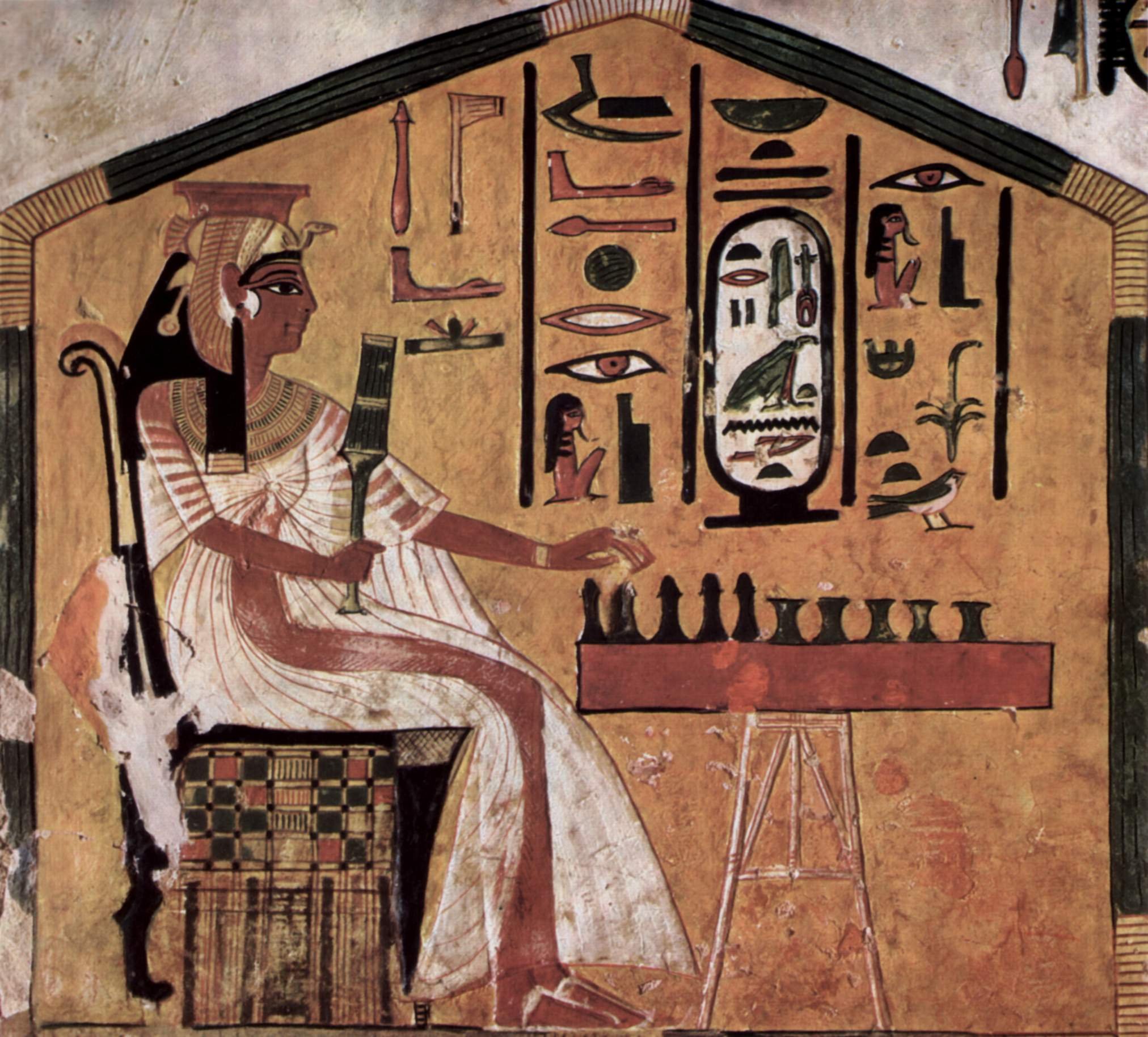
The earliest known board games appear in Egypt and the Middle east around 3500 BCE, however, some have argued that stone carving are game boards for Mancala, if so, this would place the earliest board games as dating to around 5800 BCE.
Mancala is a game popular the world over, although it is particularly prominent in Africa, the Middle East, and the Caribbean. It has many variations of rules, although they all consist of moving seeds, beads, or other counters between divots in a board.
Senet, one of the oldest known board games. Wiki Commons.
Senet is an ancient Egyptian game, played on a board with 30 spaces, and several movable pieces. Since the game fell out of popularity when the Roman Empire took control, it’s rules have been lost to time, though some facts remain, such as the ability to block opponents and the use of casting sticks to determine chance, as opposed to dice.
The Royal Game of Ur has had its rules preserved, it is slightly more modern than Senet, dating to 2500 BCE. It involves moving all of one’s pieces the length of the board before your opponent can do so.
Many other ancient board games have maintained their popularity. Chess and Pachisi originated in India, with Backgammon hailing from what is now modern Iraq. Go, which originated in China is considered to be the oldest game that has remained continuously played.
The rules tablet dated 177 BC (British Museum) Wiki Commons.

